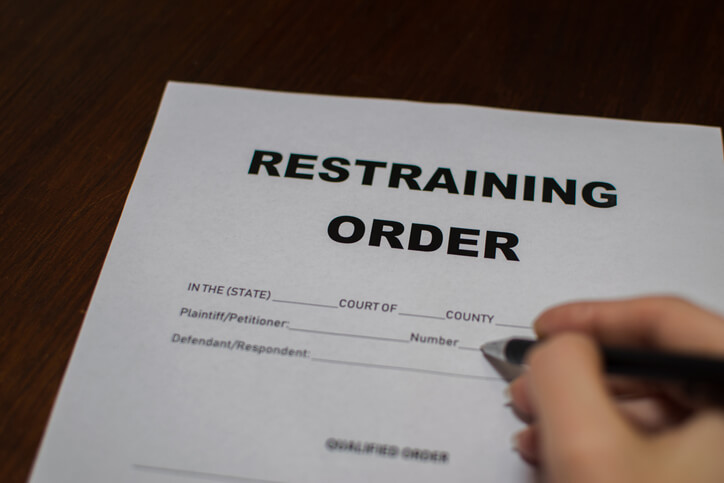If you have been accused of violating a restraining order, it’s important that you take such accusations very seriously. Doing so is a criminal offense and if found guilty, you could end up facing serious penalties, including jail time. Here’s what happens if you violate a restraining order in North Carolina.
What Is a Restraining Order?
A restraining order, legally known as a domestic violence protection order (DVPO), may include several protections required of you, such as:
- Ordering you to provide support for a spouse or minor children;
- Prohibiting you from purchasing a firearm for a period of time;
- Giving the victim possession of the household and shared personal property (and ordering your eviction);
- Ordering you to complete an approved treatment program;
- Ordering you to provide the victim (if they are your spouse) and your children with suitable housing; and/or
In addition to requiring you to do certain things, a protective order may also require you to refrain from certain conduct, such as:
- Contacting the victim, whether directly or indirectly;
- Harassing the victim by phone or email;
- Harassing the victim by showing up at their home or place of work;
- Following, threatening, or abusing the victim;
- Abusing a pet; and/or
- Interfering with the victim in another manner.
Ex Parte Emergency Order
Another type of restraining order is called an ex parte, commonly referred to as an emergency order. This order may be granted in instances in which there is an immediate threat of harm (and the process for receiving a standard DVPO would take too long). With an ex parte order, the court provides the victim(s) with protection prior to the approval of a standard DVPO.
An ex parte DVPO may require that you:
- Stay away from your children;
- Leave your residence;
- Surrender any firearms, ammunition, and/or gun permits; and/or
- Surrender possession of your motor vehicle.
Penalties for Violating a Protective Order in North Carolina
If you are believed to have violated a protective order, you can be arrested immediately. The penalties you will face will be dependent upon what part of the order you are accused of violating:
- Knowingly violating a protective order but not committing another crime is a Class A1 misdemeanor, which can result in up to 150 days in prison.
- If you have prior convictions for violating a DVPO, you may be found guilty of a Class H felony, which can result in up to 39 months in prison, court fees, probation, and attorneys fees.
- If you possess, receive, or purchase a firearm, ammunition, or related permits, you can be found guilty of a Class H felony.
- If you fail to stay away from a place or person (as required by the order) while in the possession of a deadly weapon, you can be found guilty of a Class H felony.
Defending Yourself
Just because you have been charged with violating a restraining order, it doesn’t mean that you are guilty. You have the right to defend yourself against such accusations. Defenses may include the following:
- You did not knowingly violate the order;
- The order expired and was not renewed;
- The victim falsely accused you of violating the order; and/or
- You did not receive notice of the order.
With such serious consequences at stake, it’s in your best interest to consult with a qualified North Carolina criminal defense attorney.
Hancock Law Firm, PLLC Helps Those in North Carolina who Have Been Accused of Violating a Restraining Order
If you have been accused of violating a restraining order, it can be a scary time. However, it’s important to understand that you still have rights. Your best bet for defending yourself is with the help of a knowledgeable and experienced North Carolina criminal defense attorney who understands what you are up against and will fight on your behalf.
At Hancock Law Firm, PLLC, we fully understand what is at stake and will do everything that we can to help you fight this charge. To learn more or to schedule a free consultation, contact us today!


